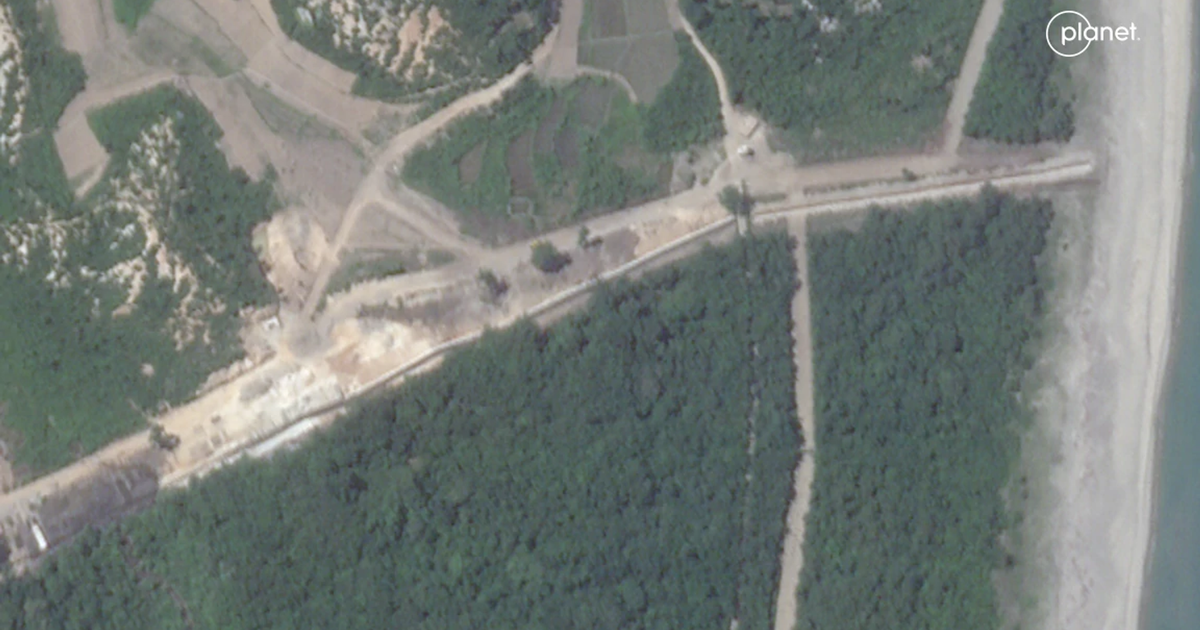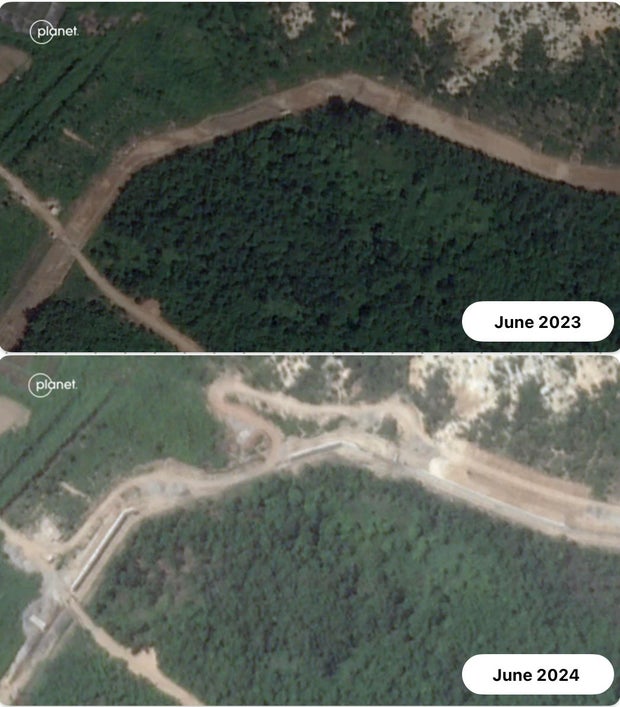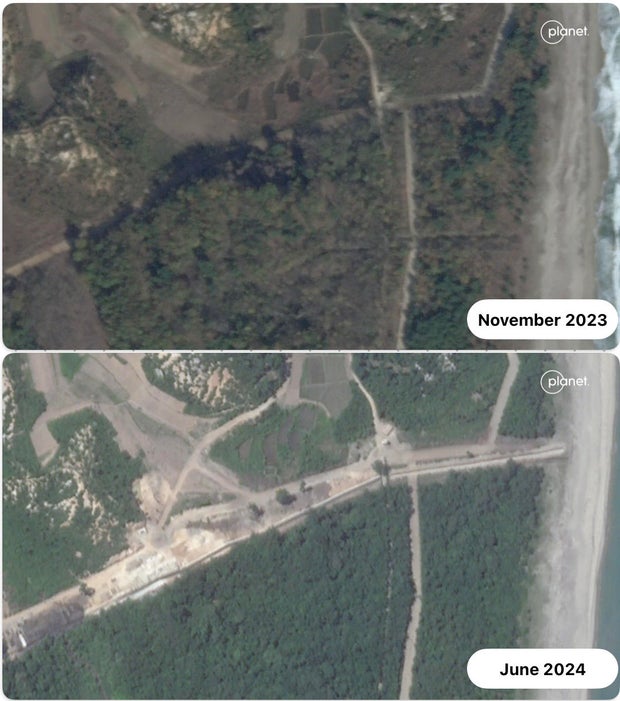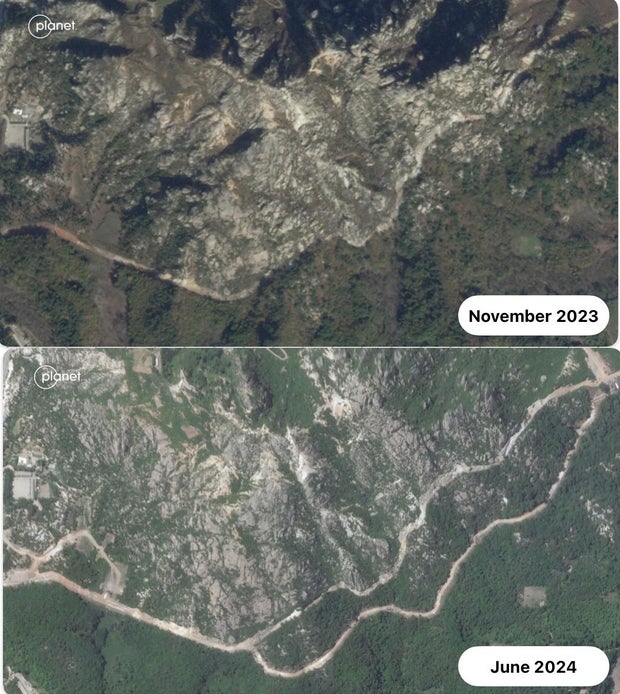North Korea has started construction on what appears to be tranches of wall near its border with South Korea, new satellite imagery shows.
The satellite images captured on June 17 and provided to CBS News by Planet Labs PBC show three white structures along the most eastern part of its border. BBC Verify was first to report on the new construction and satellite imagery.
Planet Labs PBC
The images also reveal that land was cleared for an access road on the North Korean side of the Demilitarized Zone, or DMZ. There have been recent reports of North Korea clearing land within other parts of the DMZ as part of a tougher stance against the South.
Established in 1953, the DMZ is a 150-mile long and 2.5-mile wide buffer that separates North and South Korea. It was created as part of the Korean Armistice Agreement. Given that a peace treaty was never signed, the two sides are still technically at war.
Planet Labs PBC
Dongsei Kim, an assistant professor at the New York Institute of Technology who has researched the DMZ, confirmed to CBS News that the cleared land and new road is within the original DMZ area. However, he said both sides have pushed into this original area multiple times over the past 70 years.
While the exact date that construction began is unclear, these structures and roads were not visible in satellite imagery from November 2023.
Planet Labs PBC
The new images come just days after South Korean forces fired warning shots for the second time this month at North Korean soldiers who briefly crossed the military demarcation line, said the South Korea Joint Chiefs of Staff in a text message to media outlets.
South Korea’s military has said North Korea has been increasing construction activity in frontline border areas, including installing suspected anti-tank barriers, reinforcing roads and planting landmines.
Russian President Vladimir Putin and North Korean leader Kim Jong Un this week signed a strategic partnership agreement in Pyongyang as part of an effort to expand their military and economic cooperation. The agreement included a pledge for “mutual assistance” in the event of “aggression,” according to Russian media.




